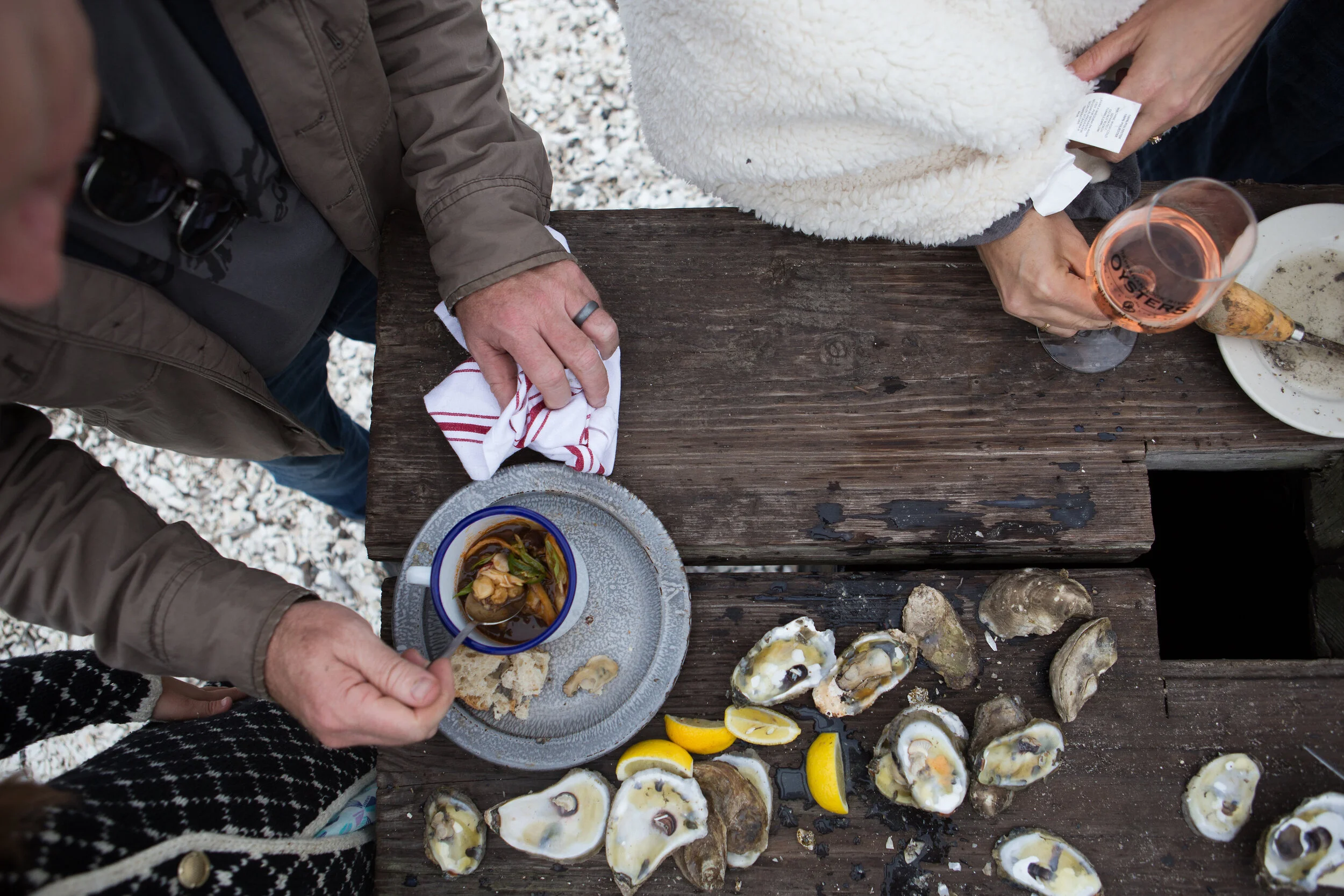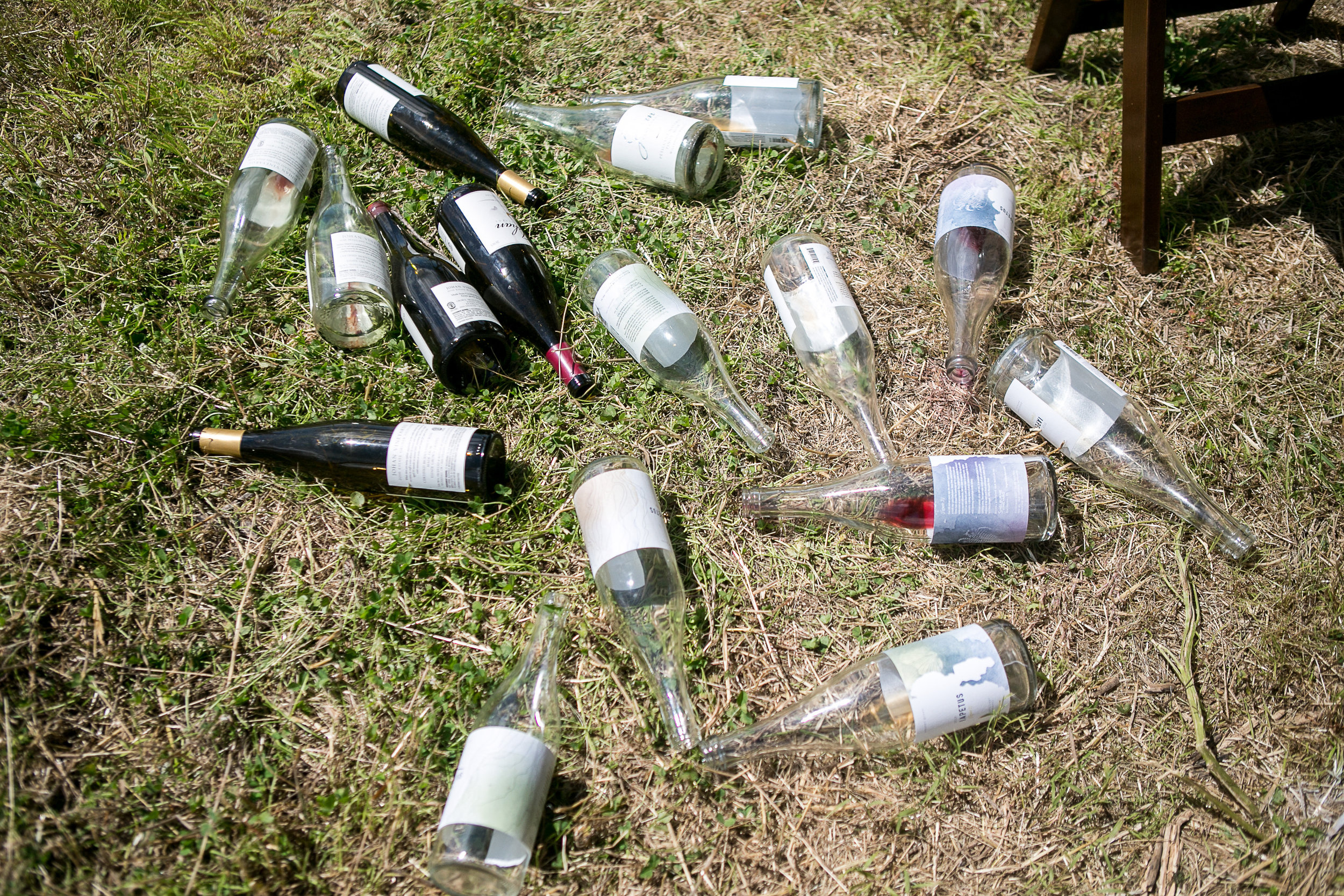Maryland's First Natural Wine Festival Celebrates the Beginning of Summer
/by Jessica Wolfrom and photos by Linda Wang
This weekend, Maryland was awash in natural wine.
Winemakers from across the world gathered under a giant tent in Clarksburg, Maryland to celebrate Summer Solstice, a natural wine festival put on by Drew Baker and his sisters, Lisa Hinton, and Ashli Johnson of Old Westminster Winery.
The Burnt Hill Project. Photo by Linda Wang
Maryland isn't considered an epicenter for the natural wine movement, but this is starting to change.
“If you were to tell me that something like this would have happened when I moved here last year,” said Eric Moorer of Domestique, a natural wine shop in D.C., “I don’t know if I would have necessarily believed you.”
Eric Moorer of Domestique. Photo by Linda Wang
But now, consumers and winemakers alike are reconsidering the way wine is made and the kinds of wine we are putting into our bodies.
The festival took place at Baker’s newest vineyard, The Burnt Hill Project, which he planted just months ago. “Rather than sit back quietly and wait four years to release our first bottle of wine,” said Baker, who is farming Burnt Hill biodynamically, “we wanted to host Summer Solstice to celebrate folks who inspire the way that we farm and elevate the beauty of natural wine.”
Drew Baker at Summer Solstice Festival. Photo by Linda Wang
Baker was adamant that the people pouring the wines at the festival were the ones who made them. Producers like Laura Brennan Bissell of Inconnu, Todd Cavallo of Wild Arc Farm, Chris Brockway of Broc Cellars, Nate Ready of Hiyu Wine Farm, and, Old Westminster’s very own Lisa Hinton joined Baker on Burnt Hill to pop corks and spill wine into eager glasses on the year’s longest evening.
Photo by Linda Wang
“I heard from a lot of people that this festival is not like other festivals,” said Moorer. At larger festivals, he said, the rock stars of the natural wine world generally attract mobs, leaving lesser-known producers feeling passed over and dejected.
“At Solstice, it felt like everyone in attendance was interested in each and every table,” said Moorer.
Although there is no official definition of natural wine, its overarching philosophy prescribes a kind of stripping away. Natural and low-intervention winemakers encourage fermentation without adding things like yeasts, bacterias, and acids to manipulate or enhance the wine’s flavor or balance. Baker describes these as “wines without makeup.”
The DMV has seen a surge in natural wine recently, both in the retail and restaurant space. In D.C., places like Dio wine bar and Domestique are expanding Washingtonian’s palates for the natural stuff. Fadensonnen in Baltimore is a similarly popular pilgrimage for those seeking out low intervention wine across Maryland. Restaurants like Bad Saint, Komi, and Little Pearl have started pouring pet-nats (and other natural wines) with abandon.
Photo by Linda Wang
But as writer Jamie Goode points out, the natural wine world can feel a little like a cool kids club. For those unfamiliar with vins de soifs - wines that exist simply to quench thirst - or glou glou, literally ‘glug-glug’, which implies that the wine is so good you can’t help but drink it, it’s easy to feel left out of a world already oversaturated with nomenclature.
“Natural wines are definitely new to me,” said Baltimore-based food blogger, Linda Song. “But I really enjoyed the festival. The location was beautiful, and both the staff and attendees were enthusiastic about sharing their love of these wines.”
Photo by Linda Wang
Moorer agrees. “It does feel like the vibe is different here,” he said. “These producers don't have to be friends, but they are here to support each other, taste each other wines, and share ideas.”
Supporting each other, at least in Baker’s mind, was the whole point. Summer Solstice might be over, but the relationships forged on Baker’s hillsides will last far into the future.










